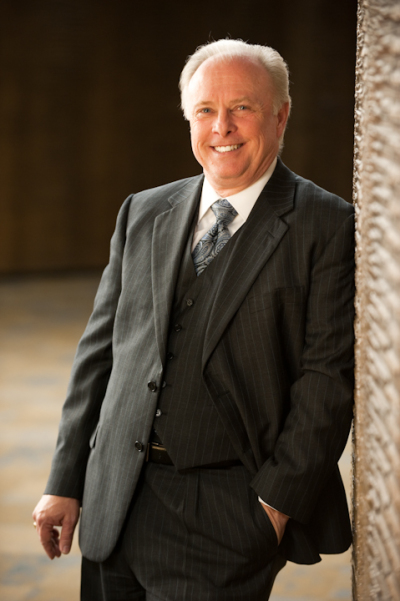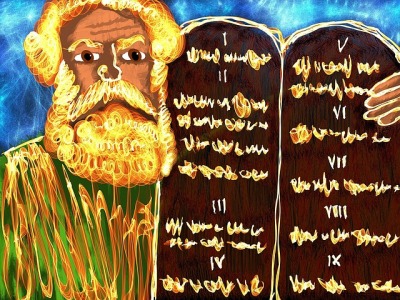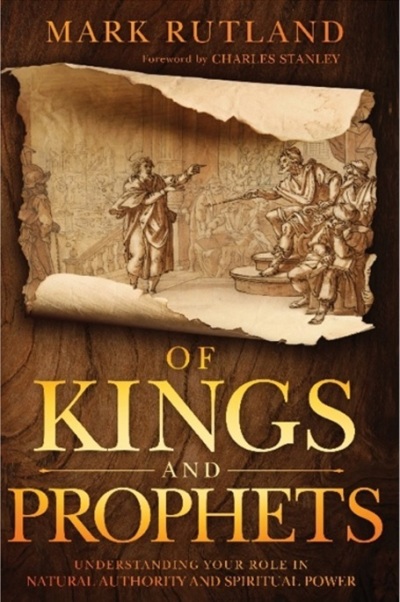Fmr. Oral Roberts president examines how prophets confront kings in new book

A pastor and former president of Oral Roberts University has released a book that looks at how Old Testament prophets confronted kings when their actions went against God's will.
Mark Rutland, who founded and serves as executive director of the National Institute of Christian Leadership, has written a new book, titled Of Kings and Prophets: Understanding Your Role in Natural Authority and Spiritual Power, released on Oct. 5.
In an interview with The Christian Post, Rutland explained that he was inspired to write this book after working on a previous book focused on King David, titled David the Great.
“In the context of that, of course, is the encounter between Nathan and David over the Bathsheba incident,” recalled Rutland. “So I became fascinated with the idea of prophetic encounter. What it meant, who responds to it, that kind of thing.”
This fascination, as Rutland described it, included themes such as the “contemporary context, the interaction between secular power and celebrity,” as well as the interaction between “spiritual authority and secular power.”
The Christian Post talked with Mark Rutland about his latest book, who his favorite prophet was, and the difference between prophetic confrontations of authority and the New Testament calls for submitting to leaders. Below are excerpts from that interview.
CP: In the opening chapter, you discussed an anecdote of a student who was dismissive of your focusing on a major revival event in Wales solely because it happened back in 1904. Do you believe that the modern American Church needs to do more to educate its members about the richness of Christian history? What would you say is the value of learning about such events?
Rutland: To be succinct, yes.
In the first place, I think history of any kind is its own value. But Christian history, particularly.
We've lost our whole sense of personal identity. Who we are, the power of the Gospel, the authority of it. All of that needs to be revisited, and I believe that young people need to be inspired to understand the what-ifs: What if this happens? What might happen? What could I accomplish? How could God use me?
And if we understand what happened, say in the Upper Room or in Wales, then that can't be irrelevant to my experience. We are connected in deep tissue spiritual Christianity with every Christian that ever lived, and therefore with every revival that ever happened, or every prophetic encounter that's valid and authentic.

CP: Among the prophets you focused on in the book, did you have a favorite one? If so, who?
Rutland: It’s not going to be surprising because he certainly is the most famous, and his succinct prophetic announcement is the most famous of all. People can quote it who never read the Bible, and that is Moses. And his announcement was: “Let my people go."
There are people who … they learned it from Metro-Goldwyn-Mayer and not from Exodus, but still, they know it. So it’s the most famous and succinct of all prophetic announcements.
And that's my favorite, because it has direct implication and application to where we are with the church and the government today, and laws today, particularly over the issue of abortion.
CP: In Chapter 5, you wrote, "It is always dicey when revelations, dreams, and prophecies serve political and military ends." In the United States, there has been a lot of concern over religious agendas being hijacked by political parties and public policy groups. What are some good warning signs to avoid that from happening?
Rutland: It is always a temptation to confuse the voice of my own ego — what I want, what I hope for — with the voice of God.
It always hangs over us, and so, the first thing is we have to get in touch with the reality that we are fallible. Just because I think it, just because I want it, just because I passionately desire it, we can't work backward. We are made in the Image of God; He's not made in our image. We can't work backward from what I want to assume what is the will of God.
When I was a kid, I was taught, “Thou shalt not take the name of the Lord thy God in vain.” I was taught that meant don't use the name of Jesus to cuss people out. Which, by the way, I am opposed to.
But that's not what it means. What it means is using the authority and power and name if you will of God for vainglorious purposes. So that is to say, you could make a political prognostication, a prediction, you can even say what you hope will happen. I don't see anything wrong with speaking to political issues.
The issue is when you tack on “thus saith the Lord.” That changes everything. And so, if more people, if the body of Christ held people who make wrong or false prophecies accountable, fewer people would do it.
CP: On multiple occasions in the book, you stressed that the various prophets were not perfect, as their flaws were often documented in the Old Testament. Why did you believe it was important to point this out in your book?
Rutland: The reason for that is because self-elimination, self-disqualification is a constant struggle in the Body of Christ. The more I get in touch with who I am and with my flaws, like Isaiah in his sixth chapter, “woe is me, I am a man of unclean lips and I dwell among a people of unclean lips,” then self-disqualification is the next step, “God cannot possibly use me.”
But if I can see that God did use people that were flawed, we're touched with the fact that kings were flawed.
None of the prophets committed adultery or murder, but still, they're not perfect; they're not flawless. So therefore, I don't have to necessarily be disqualified because of my imperfections.
That's one reason I wanted to go there.

CP: How would you reconcile the Old Testament prophets' frequent challenging of human authority with the instances in the New Testament where believers are commanded to submit to authority?
Rutland: There is a difference between prophetic denunciation of the sin and authority. There's no place where the Old Testament prophets who confronted the kings called on the Israeli people to mount a rebellion against them.
John the Baptist, who is both an Old Testament and a New Testament prophet, technically, because he speaks ahead to the coming of Messiah and then he says he is here, which puts him in the New Testament. He certainly confronted Herod, but he confronted Herod over his personal sin, he wasn't calling for rebellion against Rome.
Jesus is certainly a prophetic voice ... and He never calls for a rebellion against Rome.
I think that the line is between rebellion and we can obey civil authorities insofar as the laws do not cause me to sin. There might be civil laws that allow sin to happen.
For example, the sin of abortion. I can obey the law and pray for the government and honor the flag, but they're not forcing me to abort a child. At that point, it’s a whole different ballgame.
CP: How do you hope your book influences churches?
Rutland: In two ways. One is my deepest hope for the book is that people will respect and handle with respect and with awe, with fear, the supernatural authority of God. That it becomes a fearful thing to toss around: “the Lord told me,” “God sent for me to tell you.” Even if you don't technically say “thus saith the Lord,” that's a very huge thing. I think that sometimes, in particularly large elements of the Body of Christ, it’s been handled quite frivolously. So I hope that it will be a sobering book.
The second is, I hope that it stirs up in us the sense of being a part of the state, in the state. I am patriotic, I love my country, but not being seduced by access to power and celebrity.



























